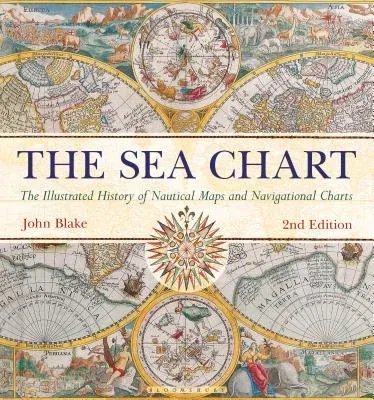Ocean sailing needed skill, courage, and experience, and the sea chart
was the tool by which ships of trade, transport, or conquest navigated.
This examines the history and development of the chart and the nautical
map, in both scientific and aesthetic terms as a means of safe and
accurate seaborne navigation. The Italian merchant-venturers of the
early thirteenth century developed the earliest "portolan" pilot charts
of the Mediterranean. The subsequent speed of exploration by European
seafarers to the New World, around the Cape of Good Hope, and on trade
routes to the East, India, and the Spice Islands were results of the
development of the sea chart. By the eighteenth century, the discovery
and charting of the coasts and oceans of the globe had become a
strategic naval and commercial requirement. Such involvements led to
Cook's voyages in the Pacific, the search for the Northwest Passage, and
races to the Arctic and Antarctic.
The volume is arranged along chronological and geographical lines. Each
of the ten chapters is split into distinct halves, examining the history
of charting a particular region and the context under which such
charting took place, followed with specific navigational charts and
other relevant illustrations. Key figures or milestones in the history
of charting are then presented in stand-alone story box features.
This new edition features forty new charts and accompanying text.

